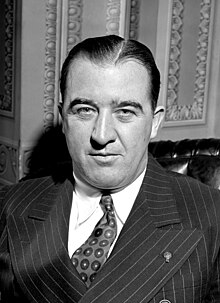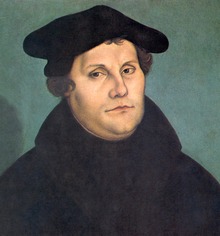June 15 is the 166th day of the year (167th in leap years) in the Gregorian calendar. There are 199 days remaining until the end of the year.
Holidays
- Arbor Day (Costa Rica)
- Cagayan de Oro Charter Day (Cagayan de Oro City)
- Christian Feast Day:
- Augustine of Hippo (Eastern Orthodox Church)
- Blessed Albertina Berkenbrock
- Blessed Clement Vismara
- Edburga of Winchester
- Evelyn Underhill (Church of England and the The Episcopal Church)
- Germaine Cousin
- Maria Micaela of the Blessed Sacrament
- Trillo
- Vitus, Modestus and Crescentia
- June 15 (Eastern Orthodox liturgics)
- Day of Valdemar and Reunion day (Flag Day) (Denmark)
- Earliest day on which Father’s Day can fall, while June 21 is the latest; celebrated on the third Sunday in June. (United States, and most other countries.)
- Global Wind Day (international)
- Mangaia Gospel Day (Mangaia, Cook Islands)
- National Salvation Day (Azerbaijan)
- Statehood Day (Arkansas)
- The first day of the month of Harh. (Sikhism)
History
In 763 BC, Assyrians record a solar eclipse that is later used to fix the chronology of Mesopotamian history.
In 844, Louis II is crowned as king of Italy at Rome by pope Sergius II.
In 923, Battle of Soissons: King Robert I of France is killed and King Charles the Simple is arrested by the supporters of Duke Rudolph of Burgundy.
In 1184, King Magnus V of Norway is killed at the Battle of Fimreite.
In 1215, King John of England puts his seal to the Magna Carta.
In 1219, Northern Crusades: Danish victory at the Battle of Lyndanisse (modern-day Tallinn) establishes the Danish Duchy of Estonia. According to legend, this battle also marks the first use of the Dannebrog, the world’s first national flag still in use, as the national flag of Denmark.
In 1246, With the death of Duke Frederick II, the Babenberg dynasty ends in Austria.
In 1300, The city of Bilbao is founded.
In 1312, At the Battle of Rozgony, King Charles I of Hungary wins a decisive victory over the family of Palatine Amade Aba.
In 1389, Battle of Kosovo: The Ottoman Empire defeats Serbs and Bosnians.
In 1410, In a decisive battle at Onon River, the Mongol forces of Oljei Temur were decimated by the Chinese armies of the Yongle Emperor.
In 1502, Christopher Columbus lands on the island of Martinique on his fourth voyage.
In 1520, Pope Leo X threatens to excommunicate Martin Luther in papal bull Exsurge Domine.
In 1580, Philip II of Spain declares William the Silent to be an outlaw.
In 1648, Margaret Jones is hanged in Boston for witchcraft in the first such execution for the Massachusetts Bay Colony.
In 1667, The first human blood transfusion is administered by Dr. Jean-Baptiste Denys.
In 1752, Benjamin Franklin proves that lightning is electricity (traditional date, the exact date is unknown).
In 1775, American Revolutionary War: George Washington is appointed commander-in-chief of the Continental Army.
In 1776, Delaware Separation Day – Delaware votes to suspend government under the British Crown and separate officially from Pennsylvania.
In 1785, Jean-François Pilâtre de Rozier, co-pilot of the first-ever manned flight (1783), and his companion, Pierre Romain, become the first-ever casualties of an air crash when their hot air balloon explodes during their attempt to cross the English Channel.
In 1804, New Hampshire approves the Twelfth Amendment to the United States Constitution, ratifying the document.
In 1808, Joseph Bonaparte becomes King of Spain.
In 1836, Arkansas is admitted as the 25th U.S. state.
In 1844, Charles Goodyear receives a patent for vulcanization, a process to strengthen rubber.
In 1846, The Oregon Treaty establishes the 49th parallel as the border between the United States and Canada, from the Rocky Mountains to the Strait of Juan de Fuca.
In 1849, James K. Polk, American lawyer and politician, 11th President of the United States died. (b. 1795). Polk was born in Mecklenburg County, North Carolina. He later lived in and represented Tennessee. A Democrat, Polk served as the 17th Speaker of the House of Representatives (1835–1839) and Governor of Tennessee (1839–1841). Polk was the surprise (dark horse) candidate for president in 1844, defeating Henry Clay of the rival Whig Party by promising to invade and annex Texas. Polk was a leader of Jacksonian Democracy during the Second Party System. Polk was the last strong pre–Civil War president, and he is the earliest of whom there are surviving photographs taken during a term in office. He is noted for his foreign policy successes. He threatened war with Britain over the issue of which nation owned the Oregon Country, then backed away and split the ownership of the region with Britain. When Mexico rejected American annexation of Texas, Polk led the nation to a sweeping victory in the Mexican-American War, which gave the United States most of its present Southwest. He secured passage of the Walker tariff of 1846, which had low rates that pleased his native South, and he established a treasury system that lasted until 1913. Polk oversaw the opening of the U.S. Naval Academy and the Smithsonian Institution, the groundbreaking for the Washington Monument, and the issuance of the first postage stamps in the United States. He promised to serve only one term and did not run for reelection. He died of cholera three months after his term ended. Scholars have ranked him favorably on the list of greatest presidents for his ability to set an agenda and achieve all of it. Polk has been called the “least known consequential president” of the United States.
In 1859, Pig War: Ambiguity in the Oregon Treaty leads to the “Northwestern Boundary Dispute” between United States and British/Canadian settlers.
In 1861, The citizens of Jackson TN observed a day of fasting and prayer, ordered by Confederate President Jefferson Davis.
In 1864, American Civil War: The Second Battle of Petersburg begins.
In 1864, Arlington National Cemetery is established when 200 acres (0.81 km2) around Arlington Mansion (formerly owned by Confederate General Robert E. Lee) are officially set aside as a military cemetery by U.S. Secretary of War Edwin M. Stanton.
In 1867, Atlantic Cable Quartz Lode gold mine located in Montana.
In 1877, Henry Ossian Flipper becomes the first African American cadet to graduate from the United States Military Academy.
In 1878, Eadweard Muybridge takes a series of photographs to prove that all four feet of a horse leave the ground when it runs; the study becomes the basis of motion pictures.
In 1888, Crown Prince Wilhelm becomes Kaiser Wilhelm II; he will be the last Emperor of the German Empire. Due to the death of his predecessors Wilhelm I and Frederick III, 1888 is the Year of the Three Emperors.
In 1896, The deadliest tsunami in Japan’s history kills more than 22,000 people.
In 1904, A fire aboard the steamboat SS General Slocum in New York City’s East River kills 1,000.
In 1905, Princess Margaret of Connaught marries Gustaf, Crown Prince of Sweden.
In 1909, Representatives from England, Australia and South Africa meet at Lord’s and form the Imperial Cricket Conference.
In 1913, The Battle of Bud Bagsak in the Philippines ends.
In 1916, U.S. President Woodrow Wilson signs a bill incorporating the Boy Scouts of America, making them the only American youth organization with a federal charter.
In 1919, John Alcock and Arthur Brown complete the first nonstop transatlantic flight when they reach Clifden, County Galway, Ireland.
In 1920, Duluth lynchings in Minnesota.
In 1920, A new border treaty between Germany and Denmark gives northern Schleswig to Denmark.
In 1934, The U.S. Great Smoky Mountains National Park is founded.
In 1937, A German expedition led by Karl Wien loses sixteen members in an avalanche on Nanga Parbat. It is the worst single disaster to occur on an 8000m peak.
In 1940, World War II: Operation Ariel begins – Allied troops start to evacuate France, following Germany’s takeover of Paris and most of the nation.
In 1944, World War II: Battle of Saipan: The United States invade Japanese-occupied Saipan.
In 1944, In the Saskatchewan general election, the CCF, led by Tommy Douglas, is elected and forms the first socialist government in North America.
In 1945, The General Dutch Youth League (ANJV) is founded in Amsterdam, Netherlands.
In 1954, UEFA (Union of European Football Associations) is formed in Basel, Switzerland.
In 1972, Red Army Faction co-founder Ulrike Meinhof is captured by police in Langenhagen.
In 1978, King Hussein of Jordan marries American Lisa Halaby, who takes the name Queen Noor.
In 1985, Rembrandt‘s painting Danaë is attacked by a man (later judged insane) who throws sulfuric acid on the canvas and cuts it twice with a knife.
In 1991, In the Philippines, Mount Pinatubo erupts in the second largest volcanic eruption of the 20th Century. In the end, over 800 people die.

In 1991, Happy Chandler, American businessman and politician, 49th Governor of Kentucky (b. 1898) dies in Versailles on June 15, 1991, and was buried in the churchyard of Pisgah Presbyterian Church near Versailles. He was an American politician from the Commonwealth of Kentucky. He represented the Commonwealth in the U.S. Senate and served as its 44th and 49th governor. Aside from his political positions, he also served as the second Commissioner of Baseball from 1945 to 1951 and was inducted into the Baseball Hall of Fame in 1982. His grandson, Ben Chandler, later served as congressman for Kentucky’s Sixth District. A conservative Democrat who thought he was destined to be President. A multi-sport athlete during his college days at Transylvania College, Chandler briefly considered a career in professional baseball before deciding to pursue a law degree. After graduation, he entered politics and was elected as a Democrat to the Kentucky Senate in 1928. Two years later, he was elected lieutenant governor, serving under Governor Ruby Laffoon. Chandler and Laffoon disagreed on the issue of instituting a state sales tax and when Chandler, the presiding officer in the state senate, worked to block the legislation, Laffoon’s allies in the General Assembly stripped him of many of his statutory powers. The tax then passed by a narrow margin. Knowing that Laffoon would try to select his own successor at the Democratic nominating convention, Chandler waited until Laffoon left the state—leaving Chandler as acting governor—and called the legislature into session to enact a mandatory primary election bill. The bill passed, and in the ensuing primary, Chandler defeated Laffoon’s choice, Thomas Rhea. He then went on to defeat Republican King Swope by the largest margin of victory for a Kentucky gubernatorial race to that time. As governor, Chandler oversaw the repeal of the sales tax, replacing the lost revenue with new excise taxes and the state’s first income tax. He also enacted a major reorganization of state government, realizing significant savings for the state. He used these savings to pay off the state debt and improve the state’s education and transportation systems.
A fiscal conservative and disciple of Virginia‘s Harry F. Byrd, Chandler opposed parts of Roosevelt’s New Deal and openly disagreed with the president’s decision to prioritize European operations in World War II over the war in the Pacific. In 1945, Chandler resigned his senate seat to succeed the late Kenesaw Mountain Landisas commissioner of baseball. His most significant action as commissioner was the approval of Jackie Robinson‘s contract with the Brooklyn Dodgers, effectively integrating Major League Baseball. He also established the first pension fund for Major League players, earning him the title “the players’ commissioner”. Baseball owners were upset with Chandler’s governance, however, and did not renew his contract in 1951.
He would have been a historic President.
In 1992, The United States Supreme Court rules in United States v. Álvarez-Machaín that it is permissible for the United States to forcibly extradite suspects in foreign countries and bring them to the USA for trial, without approval from those other countries.
In 1993, James Hunt, English race car driver (b. 1947) died from a heart attack aged 45. He was a British racing driver who won the Formula One World Championship in 1976. After retiring from racing in 1979, Hunt became a media commentator and businessman. Beginning his racing career in touring car racing, Hunt progressed into Formula Three where he attracted the attention of the Hesketh Racing team and was soon taken under their wing. Hunt’s often action-packed exploits on track earned him the nickname “Hunt the Shunt”. Hunt entered Formula One in 1973, driving a March 731 entered by the Hesketh Racing team. He went on to win for Hesketh, driving their own Hesketh 308 car, in both World Championship and non-Championship races, before joining the McLaren team at the end of 1975. In his first year with McLaren, Hunt won the 1976 World Drivers’ Championship, and he remained with the team for a further two years, although with less success, before moving to the Wolf team in early 1979. Following a string of races in which he failed to finish, Hunt retired from driving halfway through the 1979 season. After retiring from motor racing, he established a career commenting on Grands Prix for the BBC. He was known for his knowledge, insights, dry sense of humour and his criticism of drivers who, he believed, were not trying hard enough, which in the process brought him a whole new fanbase. He was inducted into the Motor Sport Hall of Fame on January 29, 2014
In 1994, Israel and Vatican City establish full diplomatic relations.
In 1996, The Provisional Irish Republican Army explodes a large bomb in the middle of Manchester, England, United Kingdom.
In 2002, Choi Hong Hi, South Korean army general and martial artist, founder of Taekwondo (b. 1918)
In 2012, Nik Wallenda becomes the first person to successfully tightrope walk over Niagara Falls.
In 2013, A bomb explodes on a bus in the Pakistani city of Quetta, killing at least 25 people and wounding 22 others.
In 2014, Pakistan formally launches military operation against the insurgents in North Waziristan.





